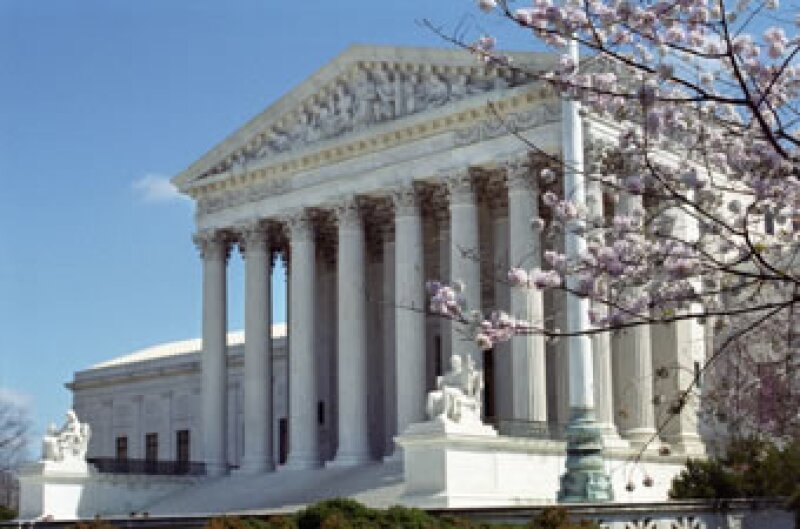
A number of other patent cases were up for vote in conference but were not granted review.
The Nautilus v Biosig case revolves around Section 112(b), which defines specification. Two questions have been presented in the case:
(1) Whether the Federal Circuit’s acceptance of ambiguous patent claims with multiple reasonable interpretations – so long as the ambiguity is not “insoluble” by a court – defeats the statutory requirement of particular and distinct patent claiming;
(2) Whether the presumption of validity dilutes the requirement of particular and distinct patent claiming.
Limelight v Akamai is a case that may clarify the law on so-called divided infringement. This is when two separate parties each perform different steps of a method claim. Akamai believes that Limelight infringed its patent covering a method for handling web traffic more efficiently by performing some steps and inducing its customers to perform others.
Akamai filed its petition requesting certiorari last February. Limelight in response asked the Supreme Court to accept the case and reaffirm the conclusion of a 1961 case Aro Manufacturing v Convertible Top Replacement of: “If there is no direct infringement of a patent there can be no [indirect] infringement”.
In ABC v Aereo it is contended that Aereo violates media companies’ copyrights by using thousands of small antennas to receive broadcast signals without paying fees. Broadcasters believes the federal appeal court ruling that favoured Aereo will encourage other cable and satellite providers to avoid paying so-called retransmission fees to carry programming.
The Supreme Court will also hear POM Wonderful v Coca-Cola, a dispute over whether a beverage label is misleading or false.
The highest profile case not granted review was Soverain v Newegg. Other cases not granted review were Power Integrations v Fairchild Semiconductor Int’l, Organic Seed Growers and Trade Association v Monsanto and Metso Mineral Industries v Powerscreen International Distribution.









